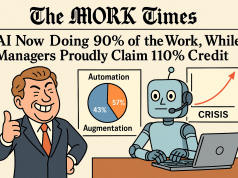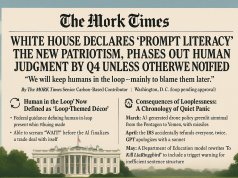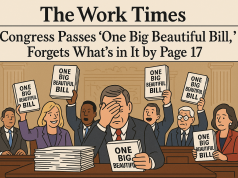In the search for a meaningful and rewarding career, a paradox emerges for the modern job seeker: the oft-quoted advice to ‘follow your passion’ versus the hard economic necessity of a stable income. Fueled by inspirational success stories, the narrative of finding a dream job that aligns with personal interests is a seductive one. But how does this advice hold up in the pragmatic world of bills and responsibilities?
As The Work Times, we delve deep into this paradox to provide a nuanced examination for our readers who expect the depth of the Washington Post, the insight of The New Yorker, and the thoroughness of The New York Times. We seek to reconcile the philosophy of pursuing one’s passions with the imperative need for financial security. Through poignant narratives, extensive research, and real-life case studies, we endeavor to offer a road map for the contemporary workforce that harmonizes personal fulfillment with economic practicality.
Our exploration begins by confronting an uncomfortable truth: the job market is inherently unpredictable and often unforgiving. Despite high job satisfaction rates in certain sectors, many individuals find themselves in roles misaligned with their intrinsic interests due to financial constraints. The emergence of the gig economy has added a complex layer to this pursuit, offering flexibility and the promise of passionate work but with less financial stability and benefits.
We then share stories of individuals who have navigated this labyrinth to find their equilibrium. From the graphic designer who took calculated risks to build a freelance business, to the accountant who found joy in the numbers that secure others’ futures, these tales offer hope and direction. Each story provides unique insight into how real people balance their dreams with the reality of economic needs.
Additionally, our assessment includes a candid analysis of the psychological toll that arises from the dissonance between job fulfillment and financial stress. We examine the role of mental health in career satisfaction and the ripple effects it can have on personal and professional well-being.
We round off with actionable advice, drawn from industry experts and career coaches, designed to guide job seekers. Strategies include identifying transferable passions that can be monetized, leveraging side projects to gradually transition into desired fields, and critically assessing job opportunities for both personal growth potential and financial viability.
In conclusion, our critical assessment acknowledges that while passion is a key ingredient to a satisfying career, a holistic view that encompasses financial wisdom is essential for success in today’s complex job landscape. The Work Times invites you to reflect, strategize, and ultimately find your own crossroads where passion and profit coalesce for a fulfilling work life.
In sharing this multi-faceted exploration, our goal is not only to provide a realistic perspective but to ignite a conversation amongst our readers about the future of work and what it means to truly thrive in it.




























